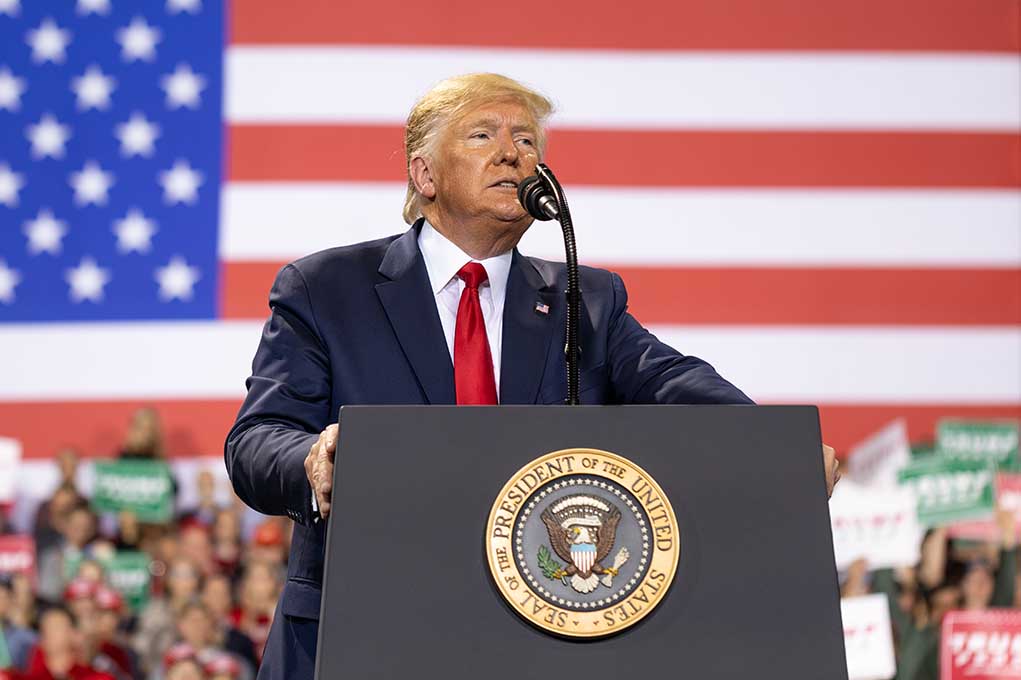
President Trump has appointed 22-year-old campaign worker Thomas Fugate with no national security experience to lead America’s main federal terrorism prevention office, raising serious questions about national security priorities amid growing extremist threats.
Key Takeaways
- Thomas Fugate, a 22-year-old recent college graduate with no counterterrorism experience, now heads the Department of Homeland Security’s Center for Prevention Programs and Partnerships (CP3)
- Fugate’s main qualifications appear to be his work on the Trump campaign and an internship at the Heritage Foundation
- The Trump administration has significantly reduced CP3’s size and shifted focus from domestic extremism to immigration concerns
- Counterterrorism experts and nonprofit groups have expressed alarm about Fugate’s appointment amid ongoing extremist threats
- The administration has proposed eliminating CP3’s grant program that supports local communities in combating terrorism
Trump Loyalty Rewarded with Critical Security Position
The Department of Homeland Security’s terrorism prevention office, known as the Center for Prevention Programs and Partnerships (CP3), is now being led by Thomas Fugate, a 22-year-old with virtually no relevant experience in national security. According to a detailed investigation by ProPublica, Fugate’s primary credentials include his recent graduation with a politics degree and his work on the Trump presidential campaign. This appointment appears to prioritize political loyalty over the specialized expertise traditionally required for such a sensitive national security position.
New: One year out of college and with no apparent national security expertise, Thomas Fugate is the Department of Homeland Security official tasked with overseeing the government's main hub for combating violent extremism. https://t.co/N4ewx5VDsK
— ProPublica (@propublica) June 4, 2025
The CP3 office, established to coordinate federal terrorism prevention efforts, has been dramatically reduced under President Trump’s direction. What was once a robust operation with significant resources has been downsized to a fraction of its former capacity, with only Fugate and two other staffers remaining. This reduction comes at a time when many security experts continue to warn about persistent extremist threats requiring coordinated federal responses.
Shifting Security Priorities Raise Concerns
President Trump’s administration has made a strategic pivot in national security focus, deemphasizing domestic extremism threats in favor of intensified border security and immigration enforcement. This realignment has effectively delegated terrorism prevention responsibilities primarily to state and local authorities, a move that raises questions about coordination and consistency in national security approaches. The administration’s stance reflects its broader immigration-focused security strategy, which views border control as the paramount security concern.
Many counterterrorism professionals have expressed alarm at this shift, particularly given recent extremist attacks across the United States. The strategic reorientation comes at a time when communities nationwide continue to face various extremist threats. Critics suggest that diminishing federal coordination could create security gaps that might be exploited by those seeking to cause harm, while supporters maintain that empowering state and local authorities allows for more tailored security responses.
Grant Program’s Uncertain Future
One of the most impactful elements of CP3’s work has been its grant program, which provides crucial funding to local communities developing terrorism prevention initiatives. Under Fugate’s inexperienced leadership, the future of this program remains uncertain, with the administration proposing its complete elimination from the budget. This would effectively end federal financial support for many community-based prevention efforts that have been working to identify and intervene before radicalization leads to violence.
The proposed elimination of this grant program represents a fundamental shift in how the federal government approaches terrorism prevention. Rather than maintaining a centralized federal program with distributed funding, the administration appears to favor allowing states to determine their own priorities and funding allocations. This approach aligns with President Trump’s broader philosophy of reducing federal bureaucracy while empowering state-level decision-making on security matters.
Experience versus Loyalty in Security Appointments
Fugate’s appointment exemplifies a pattern within the administration of prioritizing loyalty and ideological alignment over traditional qualifications and expertise. His background, primarily as a campaign worker and Heritage Foundation intern, stands in stark contrast to the extensive counterterrorism experience typically expected for such a position. This appointment strategy reflects President Trump’s consistent emphasis on surrounding himself with trusted loyalists who will faithfully implement his policy vision.
Security experts have noted that terrorism prevention requires specialized knowledge of radicalization pathways, intervention strategies, and community engagement techniques. The appointment of someone without this background knowledge raises legitimate questions about the effectiveness of federal prevention efforts moving forward. It suggests that the administration may view the role more as an administrative position aligned with policy objectives rather than one requiring specific technical expertise.




